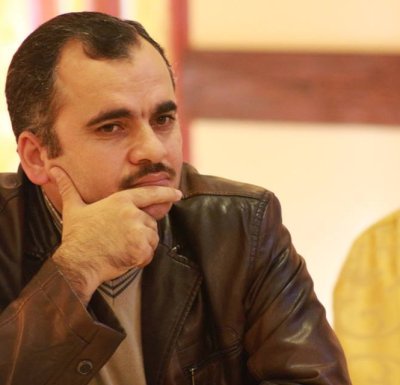Nearly a decade has passed since Israel began its “battle between wars” strategy in Syria targeting Iranian forces and Hezbollah weapons convoys. Every few days or weeks the media reports a mysterious attack in Syria for some of which Israel did not hesitate to claim responsibility. Now questions are being asked about the effectiveness of this strategy.
This is the most important campaign carried out by the Israeli army in Syria in recent years. Serious financial resources have been allocated to it to ensure its continuity and it has the support of the security services and politicians. Nevertheless it still needs to be re-examined and analyzed on a regular basis to check its consequences. Times change and so do circumstances while the occupation state still sticks to a strategy that may not be effective enough to deal with new trends and long-term threats.
Israeli military officials believe that the strategy will maintain the restrictions imposed by the Assad regime on Iranian forces in Syria but it may come at a higher cost than its benefits warrant. Today the strategy is facing a new challenge represented by the Iranian reaction against the US forces in the region and the inability to control them in Syria. The efforts have led to stronger relations between Iran and Russia which suggests that a new strategy is necessary as Israel is rumored to be rethinking its goals.
In numbers 2018 and 2019 saw 18 to 22 Israeli attacks each year while in 2020 2021 and 2022 there were 32-36 attacks each year; around three per month on average. In total between 2018 and 2022 inclusive there were 145 Israeli air strikes in Syria.
While the strategy succeeded in persuading Assad to ask Iran and its representatives not to attack Israel from Syrian territory Iranian attacks on US bases in the region in response to the Israeli raids show the price paid by the Americans. They may reduce their involvement to the point of withdrawing from Syria which would not be in Israeli interests. The continuation of such attacks raises questions about the continued US support for the Israeli campaign to limit the presence of Iranian forces in Syria.
Israeli reports show that efforts to pressure the Syrian regime do not stop the flow of Iranian arms; underground weapons facilities have been established to create long-term protection against air strikes. Israel’s focus on bombing Syrian airports in Damascus and Aleppo has increased tension between Tel Aviv and Moscow and with the outbreak of the Ukraine war the Israelis are concerned about restricting air operations in Syria and harming their interests. Even though the operational coordination between Israel and Russia is still good several developments may indicate the possibility of its decline considering Iran’s rapprochement with Russia.
A change of strategy could see Israel cutting down its attacks on civilian targets such as airports and infrastructure in exchange for the possibility of strengthening covert work which could have great potential in achieving Israeli objectives. Senior army officers talk about a new policy which does not replace the “battle between wars” but reinforces it. This could include intensified cyber and economic warfare and diplomatic and economic efforts either with regional cooperation or with population groups inside Syria such as the Druze and the Kurds.
Israel appears to have taken its attacks on Iranian targets to other countries in the Middle East including Iraq Yemen Lebanon and sometimes Iran itself. The aim is for occasional attacks without dragging Israel into an all-out war. It tries to lower the intensity of its attacks while its strategy aims in part to strengthen its position in the region.
When the “battle between wars” strategy was adopted Israel developed a weekly plan of action for its air force in Syria even as the politicians denied responsibility for the attacks giving Syria enough space to deny that they actually took place in a bid to prevent escalation. In some cases the Syrians used anti-aircraft batteries to prevent the Israeli attacks which made the Israelis believe that the enemy was advancing at an amazing pace. From Syria’s point of view the intention was to keep the Israeli army engaged 24/7.
At all times Israel has sought to ensure that its military operations deep within Syria have not resulted in Israeli casualties especially amongst its pilots. They have had to prepare for all eventualities even the unexpected given the volume of anti-aircraft missiles that they might face.
So after a decade of its “battle between wars” strategy it can be said that Israel’s attacks in Syria have increased the state’s aggression to attack Iranian arms convoys. The fear has always been that Iran will make similar efforts and find other ways to supply its regional allies with weapons in Lebanon and other countries as well as Syria. The outbreak of a major war is always a possibility which Israel seeks to avoid by limiting its air strikes while maintaining a deterrent factor.
– Dr. Adnan Abu Amer heads the Political Science and Media Department of Umma University Open Education in Gaza. His article appeared in MEMO.











